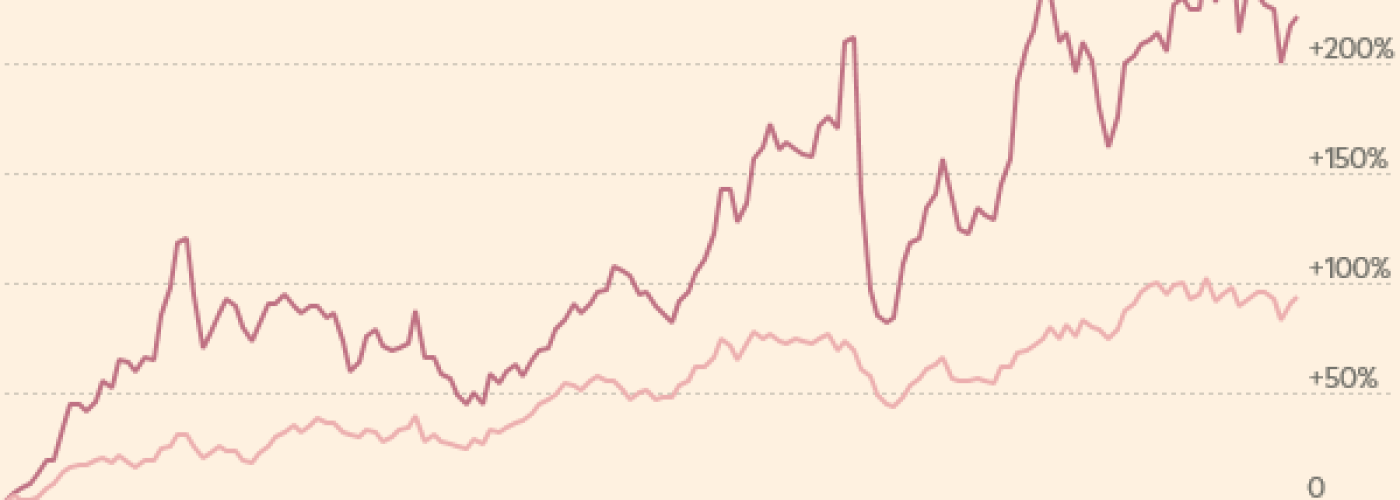
Builders work on a Barratt development in Surrey
The UK’s largest housebuilder Barratt Developments on Wednesday reported heightened demand for its homes since the Brexit vote, in the latest sign that the referendum has not so far dented the market for new housing.
As it reported annual results that hit post-crisis records, Barratt said reservations of new homes in its developments were up 6 per cent from a year earlier since the start of July, with homebuyers reserving an average of 0.75 homes a week per site.
“We had a very strong start to the year — the prior year is a strong comparator so this is very pleasing. We really see that this is about business as usual,” said David Thomas, chief executive.
“When we look at the market generally, ‘business as usual’ is what the customer is saying to us and what the banks are saying to us.”
The positive signs follow a year in which the FTSE 100 group increased pre-tax profits by 21 per cent and built its largest number of homes since the 2008 credit crunch, extending a winning streak for a sector underpinned by a housing shortage and government support.
Leicestershire-based Barratt made £682m in net profit during the year to the end of June, in line with analysts’ expectations, as it completed 17,300 new homes.
Anthony Codling, analyst at Jefferies, said the robust results were partly down to Help to Buy, a government scheme providing loans enabling people to purchase houses and flats with deposits of only 5 per cent. This supports 30 to 40 per cent of most large housebuilders’ sales.
“Whilst we are still trying to understand what Brexit actually means, the message of Help to Buy is clear and simple: the government will help you buy your home,” Mr Codling said.
“It appears that home ownership aspirations are higher than any concerns first-time buyers may have about our future role in Europe.”
Barratt noted that an extension of the Help to Buy scheme for London, enabling government loans of up to 40 per cent of the purchase price, had boosted demand for homes in the capital costing up to £600,000.
“The high end of the London market is definitely slower, but that’s not a new trend. That was in the market prior to the referendum,” Mr Thomas said. “The upside of the fall in sterling is that there is actually more interest from the overseas market.”
Barratt’s shares opened down 0.49 per cent at 504.5p on Wednesday morning. They remain 12 per cent below pre-referendum levels, having recovered from a much deeper initial plunge after the June 23 vote, prompted by investor worries over potential Brexit knock-on effects on the housing market.
Whilst we continue to monitor market conditions closely, current trading trends are positive
– David Thomas, chief executive of Barratt Developments
In the year to the end of June, Barratt increased its average selling price by 10.4 per cent to £289,800, helping to boost revenue by 13 per cent to £4.2bn.
The group said it expected “modest” growth in output during the current year. It increased its final dividend by 19 per cent to 12.3p a share and added a 12.4p special dividend, bringing the total for the financial year to 30.7p — a 22 per cent rise on a year earlier. Unlike some peers, which have issued long-term fixed payout pledges, Barratt links its special dividends to net earnings.
The FTSE 250 housebuilder Redrow also issued a buoyant outlook on Tuesday, predicting “another excellent year” in 2017 after announcing its third straight year of record results.

Copyright The Financial Times Limited 2016. You may share using our article tools.
Please don’t cut articles from FT.com and redistribute by email or post to the web.





